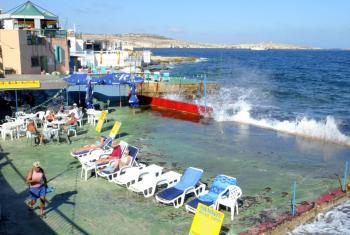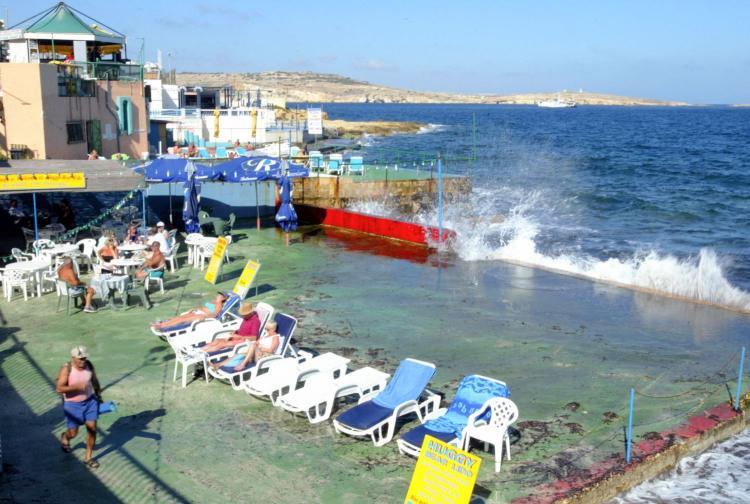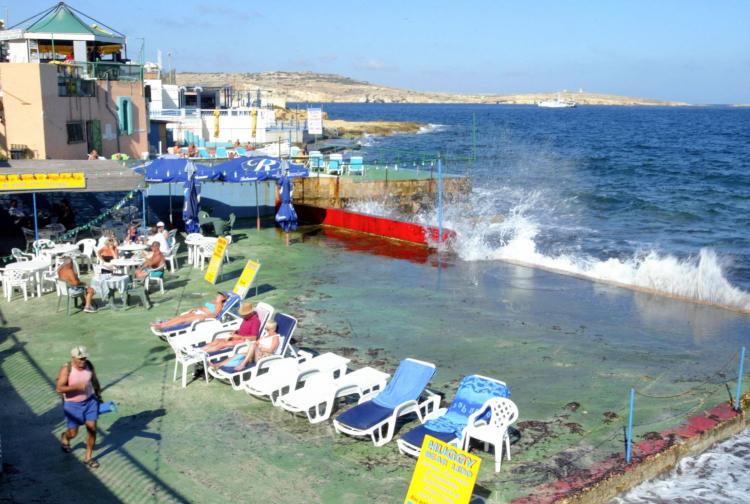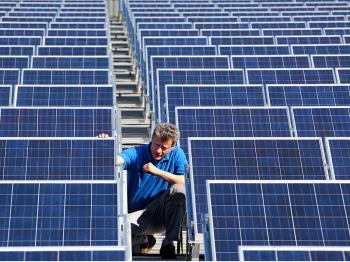We often find in life that the things we enjoy the most are the worst for us. For example, when you were growing up, you may have had adults insist you eat your vegetables because they are “good for you.” At the time you were probably frustrated and perplexed. It wouldn’t be until later in life, that you realized that this relationship with things does not only pertain to eating healthily.
If you have tried to adapt your lifestyle to be more Earth conscious, you have probably seen a similar relationship. For example, you may have asked yourself the question: Why are things that are the easiest to do, the most convenient, the most enjoyable, and oftentimes the least expensive, the things that tend to do the most harm to the environment? So, in the attempt not to make daily life impossible, we try to balance these things the best we can.
Our actions have an impact on the environment not only in our daily lives, but at special times too. For instance, when we go on vacation, we sometimes like to leave everything behind for a while, including the good habits we’ve incorporated into a lifestyle of living green. The following are some suggestions that you can use when planning a vacation so that you can still have fun and get plenty of rest and relaxation without taking a vacation from being green.
A simple solution to the dilemma of planning a green vacation would be to stay home. If this is done, you can simply maintain your everyday green routine. At the same time, you can allow yourself to do extra cleaning and household projects that may have been put off. By not traveling anywhere, you not only save energy resources that would have been consumed getting to and from your destination, but you will also save money.
Assuming that you do plan to travel somewhere during your time off, one of the first things to do is plan ahead. As a general rule, the closer you stay to home and the least amount of traveling about you do, the greener your trip will be.
If you are traveling overseas or to another continent, flying may be your only viable means of travel. Under most other circumstances, carpooling and traveling in large groups consolidates the carbon emissions of many, so it turns out to have positive long- term effects.
With flying, however, most research still suggests that flying is the least green form of travel due to the large amount of carbon emissions released during landings and departures. So, if you have to fly, here are a couple of things you can do: Select an airline that recycles all of its wastes and book direct flights when possible. For interstate travel, consider traveling by train or bus, and then rent a car, use public transportation, or walk when you arrive at your destination.
Planning ahead is important so as to not forget things, which can lead to impulse buying while on your trip. Bring as many reusable items with you so as to not generate any unnecessary waste or be tempted into purchasing disposable items such as camera, razors, batteries, and the like.
There are several hotel chains now that are designed to be eco-friendly. When selecting a place to stay, check to see if there are any eco-friendly hotels in the area or plan your trip to a place where there are eco-friendly hospitality services available.
Just as when you are at home, the three “R’s” (Reduce, Reuse, Recycle) remain important factors to living green while you’re away from home as well. You can try to select a place to stay that has receptacles for recycling paper, plastic, cans, and the like. Try to be frugal with your surroundings. For example, if you’re staying at a hotel or resort, you may not need maid service everyday to change your bedding and towels, and all those little disposable or single-serving items commonly found in hotels can be left as decorations.
Before you go, assess the things you are going to need that you don’t already own. When possible, consider renting or borrowing items that you may never use again after the trip. These things can include GPS devices, campers, tents, trailers, and special electronic devices.
Finally, before you leave home, it’s important to leave your home in an eco-friendly state. For example, all electrical appliances should be double-checked to be sure that they are turned off or preferably unplugged. The heating and cooling should be shut off or set to an extremely moderate level. You can check all faucets and water receptacles to make sure they are shut off or the water to them is cut off.
Vacationing is one of those things we do for enjoyment, like many of the things we enjoy, if we are not careful in the things we choose or do not enjoy them in moderation, they can be harmful to ourselves and sometimes to the environment. By following some of these suggestions, you can make your next vacation as green as it is enjoyable.
If you have tried to adapt your lifestyle to be more Earth conscious, you have probably seen a similar relationship. For example, you may have asked yourself the question: Why are things that are the easiest to do, the most convenient, the most enjoyable, and oftentimes the least expensive, the things that tend to do the most harm to the environment? So, in the attempt not to make daily life impossible, we try to balance these things the best we can.
Our actions have an impact on the environment not only in our daily lives, but at special times too. For instance, when we go on vacation, we sometimes like to leave everything behind for a while, including the good habits we’ve incorporated into a lifestyle of living green. The following are some suggestions that you can use when planning a vacation so that you can still have fun and get plenty of rest and relaxation without taking a vacation from being green.
A simple solution to the dilemma of planning a green vacation would be to stay home. If this is done, you can simply maintain your everyday green routine. At the same time, you can allow yourself to do extra cleaning and household projects that may have been put off. By not traveling anywhere, you not only save energy resources that would have been consumed getting to and from your destination, but you will also save money.
Assuming that you do plan to travel somewhere during your time off, one of the first things to do is plan ahead. As a general rule, the closer you stay to home and the least amount of traveling about you do, the greener your trip will be.
If you are traveling overseas or to another continent, flying may be your only viable means of travel. Under most other circumstances, carpooling and traveling in large groups consolidates the carbon emissions of many, so it turns out to have positive long- term effects.
With flying, however, most research still suggests that flying is the least green form of travel due to the large amount of carbon emissions released during landings and departures. So, if you have to fly, here are a couple of things you can do: Select an airline that recycles all of its wastes and book direct flights when possible. For interstate travel, consider traveling by train or bus, and then rent a car, use public transportation, or walk when you arrive at your destination.
Planning ahead is important so as to not forget things, which can lead to impulse buying while on your trip. Bring as many reusable items with you so as to not generate any unnecessary waste or be tempted into purchasing disposable items such as camera, razors, batteries, and the like.
There are several hotel chains now that are designed to be eco-friendly. When selecting a place to stay, check to see if there are any eco-friendly hotels in the area or plan your trip to a place where there are eco-friendly hospitality services available.
Just as when you are at home, the three “R’s” (Reduce, Reuse, Recycle) remain important factors to living green while you’re away from home as well. You can try to select a place to stay that has receptacles for recycling paper, plastic, cans, and the like. Try to be frugal with your surroundings. For example, if you’re staying at a hotel or resort, you may not need maid service everyday to change your bedding and towels, and all those little disposable or single-serving items commonly found in hotels can be left as decorations.
Before you go, assess the things you are going to need that you don’t already own. When possible, consider renting or borrowing items that you may never use again after the trip. These things can include GPS devices, campers, tents, trailers, and special electronic devices.
Finally, before you leave home, it’s important to leave your home in an eco-friendly state. For example, all electrical appliances should be double-checked to be sure that they are turned off or preferably unplugged. The heating and cooling should be shut off or set to an extremely moderate level. You can check all faucets and water receptacles to make sure they are shut off or the water to them is cut off.
Vacationing is one of those things we do for enjoyment, like many of the things we enjoy, if we are not careful in the things we choose or do not enjoy them in moderation, they can be harmful to ourselves and sometimes to the environment. By following some of these suggestions, you can make your next vacation as green as it is enjoyable.






